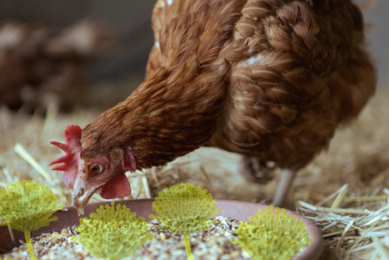Mycotoxins in horses
Although the effects of mycotoxins in horses are not well documented in scientific literature, reports from practice may show a different picture. Mycotoxins have been implicated with various horse health problems, including decreased appetite, colic, abnormal liver function, hypersensitivity, neurological disorder, and brain lesions.
Long term exposure of horses to low levels of mycotoxins may result in
immune suppression, reduced growth rate, impaired feed conversion, more
fertility problems, frequent respiratory problems, reduced performance, and
higher incidence of laminitis. In most cases these problems are considered to be
caused by reasons other than mycotoxins.
immune suppression, reduced growth rate, impaired feed conversion, more
fertility problems, frequent respiratory problems, reduced performance, and
higher incidence of laminitis. In most cases these problems are considered to be
caused by reasons other than mycotoxins.
Hence, mycotoxins often are not recognized as the real trigger or at least
as an important co-factor in the incidence of these conditions. Initially,
mycotoxins cause non-acute problems in horses. The impact on health and
reduction of performance may be negligible. But as exposure time increases
effects on performance and health become more pronounced. Researchers studying
the incidence of colic and mycotoxin contaminated feed found that some degree of
mycotoxin contamination occurred in every case of colic. But also reduced
fertility/conception rates may be evidence of mycotoxin consumption due to the
sensitivity of horses to the mycotoxin zearalenone.
as an important co-factor in the incidence of these conditions. Initially,
mycotoxins cause non-acute problems in horses. The impact on health and
reduction of performance may be negligible. But as exposure time increases
effects on performance and health become more pronounced. Researchers studying
the incidence of colic and mycotoxin contaminated feed found that some degree of
mycotoxin contamination occurred in every case of colic. But also reduced
fertility/conception rates may be evidence of mycotoxin consumption due to the
sensitivity of horses to the mycotoxin zearalenone.
The effects of mycotoxins in horses can be amplified by performance and
production stresses. Sport horses in training and competition, breeding mares
and stallions, and rapidly growing foals are more susceptible to mycotoxins than
horses used for less rigorous recreational riding or just being stabled. Their
immune competency may be compromised, their nutritional requirements may not be
fully met and they consume more concentrates.
production stresses. Sport horses in training and competition, breeding mares
and stallions, and rapidly growing foals are more susceptible to mycotoxins than
horses used for less rigorous recreational riding or just being stabled. Their
immune competency may be compromised, their nutritional requirements may not be
fully met and they consume more concentrates.











